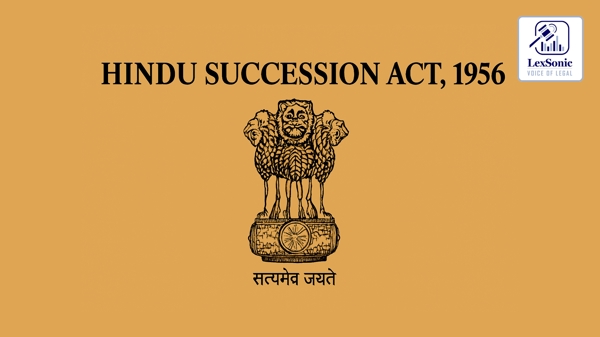In a case that highlights the complex intersection of Hindu succession laws and property rights, the Supreme Court of India recently dealt with a legal dispute involving the succession of property between two branches of the same family. The dispute arose following the death of Smt. Veerabhadramma, the second wife of Kallakuri Swamy, and centered around the property she inherited under a partition deed executed in 1933. The central issue in this case was whether Smt. Veerabhadramma’s rights over the property were absolute or limited, and whether she had the authority to bequeath it through a will.
The Factual Background:
The dispute traces its origins to the partition deed of 1933, which granted Smt. Veerabhadramma the right to enjoy certain property during her lifetime. The property in question, totaling 3.55 acres of land, was to be divided equally between her stepchildren, the two sons of Kallakuri Swamy’s first wife, after her death.
Upon Smt. Veerabhadramma’s death in 1973, a dispute erupted between her children (from her marriage to Kallakuri Swamy) and the children of the first wife regarding their respective shares in the property. The plaintiff-respondents sought a partition of the property, asserting that they were entitled to a half share in the property, in accordance with the partition deed.
The appellant-defendants, on the other hand, contended that Smt. Veerabhadramma had executed a will in 1968 bequeathing the property to one of her children. They further argued that by virtue of the Hindu Succession Act (HSA) of 1956, Smt. Veerabhadramma had acquired absolute ownership of the property and was free to dispose of it as she wished.
Key Legal Issues:
The case hinged on the interpretation of Section 14 of the Hindu Succession Act, which deals with the rights of female Hindus over property. Under Section 14(1) of the HSA, any property possessed by a female Hindu is considered to be her absolute property. However, Section 14(2) provides an exception for property acquired by a female Hindu through a will or other instruments that prescribe a restricted estate.
The appellant-defendants contended that Smt. Veerabhadramma’s possession of the property was governed by Section 14(1), thereby granting her absolute rights over it, including the ability to bequeath it through a will. On the other hand, the respondent-plaintiffs argued that the property was given to Smt. Veerabhadramma in lieu of maintenance and that she only had a life interest in the property, with the remainder to be divided between the two branches of the family.
Trial Court’s Ruling:
The trial court ruled in favor of the respondent-plaintiffs, determining that Smt. Veerabhadramma did not acquire absolute ownership of the property under the HSA, 1956. The court found that the property was given to her for maintenance, and as such, her rights were limited to a life interest, with the property to be shared between the two branches of the family after her death. The trial court also held that Smt. Veerabhadramma did not have the right to execute a will bequeathing the property.
High Court’s Ruling:
On appeal, the High Court upheld the trial court’s decision, affirming that Smt. Veerabhadramma’s rights were not absolute under the HSA, 1956. The High Court made a significant distinction between property acquired by a female Hindu for the first time, in recognition of her maintenance rights, and property acquired by her as a full owner. It found that the property in question was provided to her only for maintenance and that she had no absolute right to dispose of it through a will.
Supreme Court’s Ruling:
The Supreme Court, upon hearing the appeal, also affirmed the findings of the lower courts. It held that Smt. Veerabhadramma had only a life interest in the disputed property, in accordance with the partition deed. The court made it clear that while Section 14(1) of the HSA grants female Hindus absolute rights over property possessed by them, this provision only applies when the property is acquired by them for the first time, without any pre-existing right.
In this case, the property given to Smt. Veerabhadramma was not acquired by her under any new right, but was given to her for maintenance in accordance with the partition deed. Therefore, her rights over the property were restricted, and the property would revert to the respondent-plaintiffs upon her death, as stipulated in the partition deed.
Legal Principles and Precedents:
The case is significant in clarifying the application of Section 14 of the Hindu Succession Act, especially in relation to property given to a female Hindu for maintenance. The court relied on several precedents, including the landmark case of V. Tulsamma v. V. Sesha Reddy (1977), which established that a Hindu widow’s right to maintenance is a pre-existing right under Hindu law, and property given to her in lieu of maintenance would become her absolute property under Section 14(1) of the HSA.
The court also referred to the judgment in Gulwant Kaur v. Mohinder Singh (1987), which held that a female Hindu’s possession of property in lieu of maintenance transforms her limited rights into absolute ownership under Section 14(1), provided that the property was not acquired under any restrictive terms.
Conclusion:
The ruling in this case reaffirms the legal principles surrounding the rights of female Hindus over property, particularly in cases where the property is provided in lieu of maintenance. The court’s decision clarifies that while female Hindus may acquire absolute ownership over property under Section 14(1) of the HSA, this only applies to property acquired for the first time without any pre-existing right. Property given for maintenance remains subject to a life interest and does not automatically transform into absolute ownership.
The judgment also highlights the importance of interpreting the terms of partition deeds and wills in determining the nature of property rights. As a result, the appeal was dismissed, and the lower court’s decision was upheld.
Section 14, Hindu Succession Act - 1956
Hindu Succession Act, 1956

